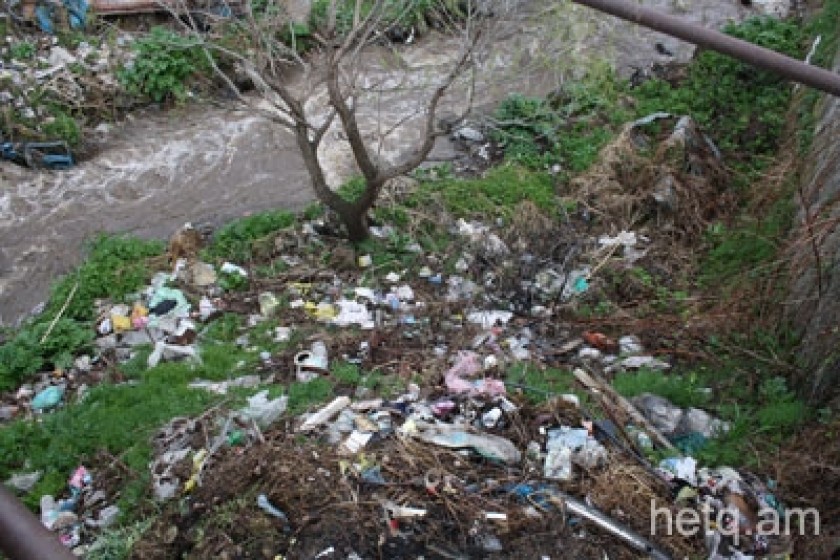
Open Air Museum or Garbage Dump? What Tourists See When Visiting Armenia
Armenia – an ancient land now being discovered by growing number of tourists for its mountains, monasteries and...Mounds of trash randomly scattered about.
It’s the heaps of garbage that caught the eye of a group of tourists recently staying at the Hotel Mirhav in Goris.
“It was painful for me,” said hotel owner Shahen Zeytountsyan. “It was unimaginable for them to see all that trash in the river.
He’s talking about the Vararak River which appeared to be choked by the amount of garbage piled along its banks and in the current as well.
Most likely the tourists, who photographed what they saw, will share these pictures with others and the reputation of the Goris region will be shot to hell. These overseas visitors would never know that in the past one could actually drink from the river. No one in their right mind would risk such a thing today.
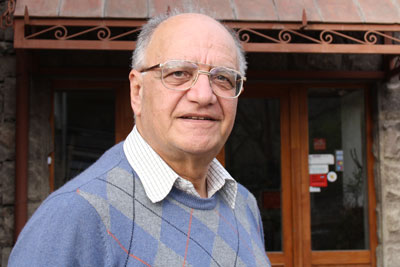 When Shahen confronts people who throw their trash into the river, he always receives the same indifferent reply – “What’s the problem? The river washes the garbage away.”
When Shahen confronts people who throw their trash into the river, he always receives the same indifferent reply – “What’s the problem? The river washes the garbage away.”
The river used to boast a healthy fish population as well. Today, area residents regard it as their personal sewer.
“There’s this one old woman who dumps a pail of garbage into the river each morning. Maybe she was brought up that way by her mother who told her that the river would wash the garbage away. Who knows?” says Shahen.
He still hopes that the river will one day be restored to its former healthy state.
Shahen believes that trash cans be installed before people reach the riverbank to toss in their household garbage.
“A few days ago I was in Yerevan. A friend and I were sitting on a bench along Northern Avenue and smoking. I tossed my cigarette butt on the pavement. I knew it was wrong so I bent down and picked it up. I looked around for a trash receptacle but saw none. Naturally, I wasn’t going to carry it around in my hand, so I tossed it on the pavement again. Later, I spied a trash receptacle some 50 meters away. I would have had to excuse myself, walked all that way to dispose of the cigarette and then walk back. There should have been a receptacle right near our bench,” Shahen says.
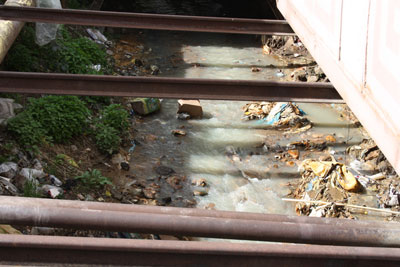 |
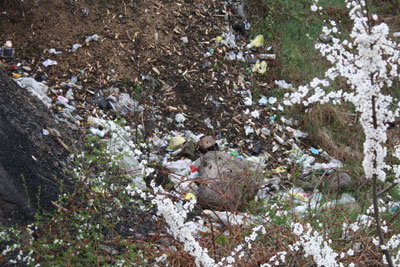 |
Shahen had lived in Germany for many years and remembers that the installation of trash receptacles worked wonders. He relates that many houses now have a number of bins for recycling purposes – plastics, glass, paper, bio-degradable matter, etc.
“Here in Armenia, we are still a long way from recycling but we can at least learn not to throw our trash in our rivers and streams,” the hotel owner says.
Shahen cites the example of a lake in Berlin that was being used by locals as a dumping ground for all sorts of refuse and trash – auto parts, refrigerators, rubber tires, you name it. He says that people finally realized that the lake had to be cleaned. He argues that the same way of thinking can take hold here in Armenia.
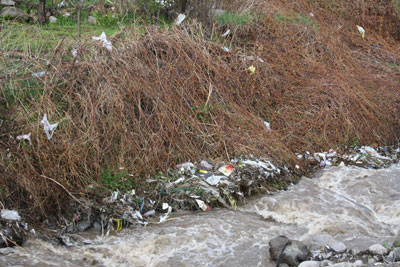 He adds that TV and radio public service announcements (messages in the public interest disseminated by the media without charge, with the objective of raising awareness, changing public attitudes and behavior towards a social issue) made a world of difference.
He adds that TV and radio public service announcements (messages in the public interest disseminated by the media without charge, with the objective of raising awareness, changing public attitudes and behavior towards a social issue) made a world of difference.
Shahen says that the Goris area has a large untapped tourist potential nut that the local environment must be kept clean. Tourists don’t want to see rivers polluted with garbage or plastic bags hanging in the branches of trees.
“There are many beautiful spots around here. Take Ukhtasar (Pilgrimage Mountain) with its cave drawings, or Hnasar (Old Mountain) where medieval monks used to live in caves. There’s the Tatev and Khdzoresk Gorges, the Bgheno Monastery, the pagan idol statues in the village of Harzhis...”
 Videos
Videos Photos
Photos
Comments (7)
Write a comment